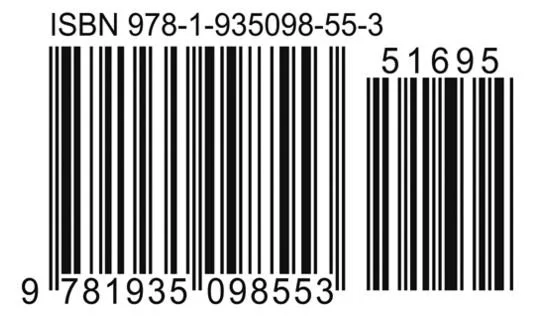Most printed products sold at retail establishments that scan items at the point of sale (POS) or checkout require a barcode. The book barcode usually comprises a graphical representation of the 13-digit ISBN (or Bookland EAN) and a “price add-on.”
In the price add-on barcode (the small barcode to the right of the primary barcode in the image above), the leading digit of 5 is used to indicate a price in US currency and a 6 is used to signify prices in Canadian currency — this prefix for the price add-on is reserved for Canadian prices only, however, it’s not widely used in the Canadian market.
The Canadian book supply chain has traditionally followed the Barcoding Guidelines for the US Book Industry, an online set of frequently asked questions that has now been updated to reflect a change to barcode expectations for the North American book industry as recommended by the Book Industry Study Group (BISG), following over two years of discussions, surveys, and consultations.
The Barcode Price Extension Working Group was unable to identify a supply chain model that would uniformly support inventory without a price extension, unless that inventory was stickered by recipients that require a price extension. As a result, BISG made the following recommendations:
Publishers that are not looking to test prices for their books should continue to supply inventory with the price extension. It helps at least some recipients manage sales and inventory without having to sticker books.
Publishers that want to test prices should consult with their partners (wholesalers, distributors, and retailers) to confirm their preferences with respect to the price extension. Recipients that require a price extension may sticker inventory received without it. The cost of that work may be negotiated between trading partners.
Retailers should communicate their expectations about the price extension to publishers as part of their normal standards and best practices.
The Guidelines now reflect these recommendations. Read the complete press release here.
Note: BookNet Canada participates in the BISG Supply Chain Committee and is happy to take any feedback or questions you may have.















Insights into romance trends and the performance of Heated Rivalry.